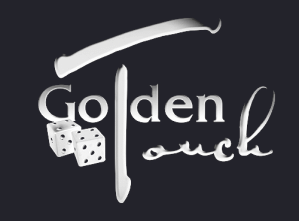
Poker Mistakes: How You Can Gain Or Lose With Mistakes At The Poker Table
Common Texas Hold’em Mistakes
Lets us start off this month with a quick quiz. Don’t worry it will only be two statements requiring only a true or false answer.
Question 1: Mistakes in Texas Hold’em are costly. True or False
Question 2: Mistakes are profitable. True or False.
If you answered "true" to both statement you are correct. Mistakes in Hold’em are costly when you are the one making them. Mistakes are profitable when your opponents make them. You will make more money from your opponent’s mistake that you will from your fancy play. Conversely your mistakes will cost you more money when you make them. Your goal should be to avoid mistakes on your part and capitalize on the mistakes of the other players.
What makes poker a game of skill and separates it from most other casino games is that your decisions matter. In poker your decision to bet, call, raise or fold will have an affect on the outcome. Although your objective is to make money, your main concern when you play poker is to always make the correct decisions and avoid making mistakes. You won't win every time you make the correct decision and you won't lose every time you make a bad decision. However, the player who makes the best decisions (fewer mistakes) will win the most money in the long run.
Mistakes are not always due to bad play. In The Theory of Poker author/expert Davis Sklansky defines the Fundamental Theorem of Poker as follows:
Every time you play a hand differently than the way you would play it if you could see all of your opponent’s cards, they gain. Every time you play your hand the same way you would if you could see your opponent’s hand you gain. The same principle applies to your opponents.
Unfortunately there is no way to know exactly what cards all of your opponents are holding. Although with experience you can gain some knowledge in reading the other players but that is the subject of a future article. For now we will just focus on a mistake as playing a hand differently than if you knew what cards the other players have. Some of the mistakes a player makes are:
Calling when you should fold.
Folding when you should call.
Calling when you should raise.
Raising when you should call or fold.
While some mistakes unforeseeable due to insufficient information concerning your opponents hand other mistakes do fall into the bad play category. The biggest mistake a player makes is calling when they should fold. In Texas Hold’em when you decide to play hand you have to call the blind bet. Playing too many hands is the downfall of many players.
Some starting hands have a positive expectation and others are negative expectation hands. The two biggest mistakes that many low limit players make is playing any two suited cards (I refer to this as ASAP) from any position and playing a single ace from any position. (I call this SAP)
ASAP is the number one mistake made by many players. Getting two suited cards as a starting hand is fairly common. The probability of being dealt two suited cards is 23.58% which means those who like to play ASAP will have plenty of chances to enter the pot. Completing your flush is a lot more difficult. If you start suited and stay to see all seven cards (your two and the five board cards) the probability that you will make a flush is 5.77%. The odds against you are 16.3:1
Simply put for every time you play two suited cards you will only make your flush about once in 16 tries. If you play low suited cards you still have to worry about a bigger flush beating you.
The second mistake is playing a single ace from any position. You will be dealt at least one Ace about 15 percent of the time before the flop which means that 85 percent of the time you won't have an Ace. Maybe that is the reason that players get so excited when they see an Ace.
If you are playing at a full table with ten players and hold a single ace the probability that there is no other player also holding an ace is 25.31 percent. That means that when you have an ace one of the nine other players will have an ace 75 percent of the time. This is why you need to consider your other card known as your kicker to go with that single ace.
Playing an Ace with a small kicker is referred to as playing a "weak Ace." When you do this, you are setting yourself up to be beaten by a player who holds an Ace with a higher kicker.
You don’t need to know what the other players are holding or have a crystal ball to know it is a mistake to play these types of hands, yet many players will do it over and over again. If you are guilty of making these two mistakes you can improve your game immediately by refraining from playing these hands.
Until next time, remember:
"Luck comes and goes...Knowledge Stays Forever!"


